The Week in Freethought History (August 26-September 1)
Here’s your Week in Freethought History: This is more than just a calendar of events or mini-biographies – it’s a reminder that, no matter how isolated and alone we may feel at times, we as freethinkers are neither unique nor alone in the world.
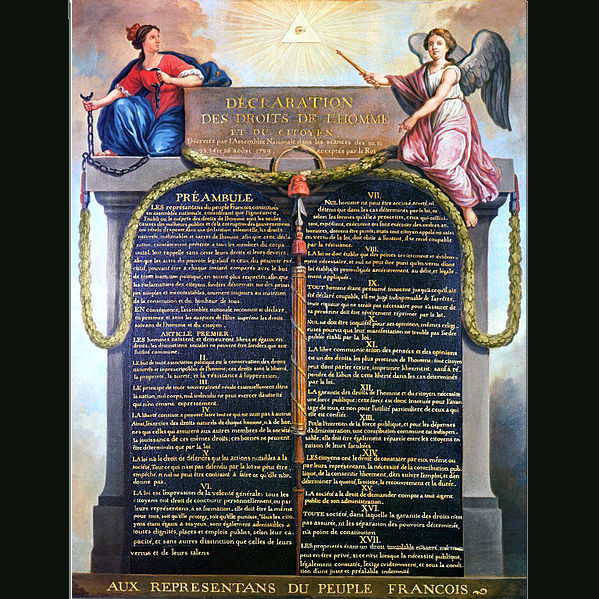 Last Sunday, August 26, but in 1789, the “Declaration of the Rights of Man and of the Citizen” (Déclaration des droits de l'homme et du citoyen) was approved by the revolutionary National Constituent Assembly of France. The document is so obviously of benefit to a constitutional democracy, and clearly does not endorse a Christian theocracy – but more important, it is a lesson to those in this country who have forgotten the meaning of “Freedom and Liberty for All” – that portions of it are remembered here:
Last Sunday, August 26, but in 1789, the “Declaration of the Rights of Man and of the Citizen” (Déclaration des droits de l'homme et du citoyen) was approved by the revolutionary National Constituent Assembly of France. The document is so obviously of benefit to a constitutional democracy, and clearly does not endorse a Christian theocracy – but more important, it is a lesson to those in this country who have forgotten the meaning of “Freedom and Liberty for All” – that portions of it are remembered here:
4. Liberty consists in the freedom to do everything which injures no one else...
9. As all persons are held innocent until they shall have been declared guilty...
10. No one shall be disquieted on account of his opinions, including his religious views, provided their manifestation does not disturb the public order established by law.
11. The free communication of ideas and opinions is one of the most precious of the rights of man...
13. A common contribution is essential for the maintenance of the public forces and for the cost of administration. This should be equitably distributed among all the citizens in proportion to their means.
15. Society has the right to require of every public agent an account of his administration.
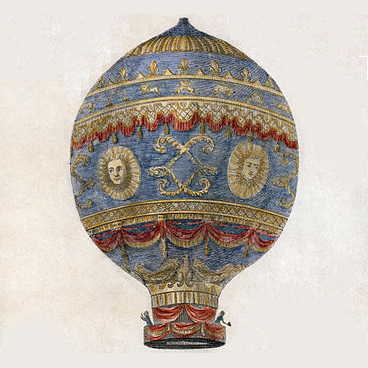 Also last Sunday, but in 1740, the French paper-maker and chemist Joseph-Michel Montgolfier, was born. With his younger brother Jacques-Étienne, they co-invented the first hot-air balloon and flew their invention in 1783. In recognition of the achievement, King Louis XVI elevated their father Pierre to the French nobility. However, Joseph-Michel Montgolfier adhered to the French Revolution, and was appointed Administrator of the National Conservatory of Arts and Crafts. The French astronomer Jérôme Lalande, a close friend, told Sylvain Maréchal, author of the Dictionary of Ancient and Modern Atheists, that Montgolfier was an Atheist. The Catholic Encyclopedia conveniently mentions only Joseph’s pious brother!
Also last Sunday, but in 1740, the French paper-maker and chemist Joseph-Michel Montgolfier, was born. With his younger brother Jacques-Étienne, they co-invented the first hot-air balloon and flew their invention in 1783. In recognition of the achievement, King Louis XVI elevated their father Pierre to the French nobility. However, Joseph-Michel Montgolfier adhered to the French Revolution, and was appointed Administrator of the National Conservatory of Arts and Crafts. The French astronomer Jérôme Lalande, a close friend, told Sylvain Maréchal, author of the Dictionary of Ancient and Modern Atheists, that Montgolfier was an Atheist. The Catholic Encyclopedia conveniently mentions only Joseph’s pious brother!
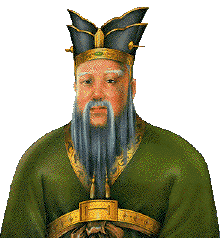 Last Monday, August 27, but in 551 BCE, by tradition, the Chinese teacher and philosopher known as Confucius (孔子) was born. When Confucius was 24, he began traveling about and teaching, usually instructing a small number of disciples he eventually drew to him in the second half of the Zhou dynasty (1027?-256 BC). Confucian philosophy from The Analects (論語) is simple: to love others; to honor one’s forbears; to do what is right instead of what is of advantage; to practice “reciprocity,” i.e., “don’t do to others what you would not want done to yourself” – the reverse of what Christians call the Golden Rule. Confucius never had any pretensions of founding a religion. Kung’s advice was, “Respect spiritual beings if there are any, but keep away from them.”
Last Monday, August 27, but in 551 BCE, by tradition, the Chinese teacher and philosopher known as Confucius (孔子) was born. When Confucius was 24, he began traveling about and teaching, usually instructing a small number of disciples he eventually drew to him in the second half of the Zhou dynasty (1027?-256 BC). Confucian philosophy from The Analects (論語) is simple: to love others; to honor one’s forbears; to do what is right instead of what is of advantage; to practice “reciprocity,” i.e., “don’t do to others what you would not want done to yourself” – the reverse of what Christians call the Golden Rule. Confucius never had any pretensions of founding a religion. Kung’s advice was, “Respect spiritual beings if there are any, but keep away from them.”
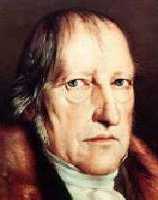 Also last Monday, but in 1770, the great the German philosopher Georg Wilhelm Friedrich Hegel was born. The one thing that exists, Hegel said in his 1816 Science of Logic, is Spirit or the Absolute Mind, which is in a state of eternal development: an unfolding of reality in terms of thesis – antithesis – synthesis. However, as to God, “The proofs,” said Hegel, “are to such an extent fallen into discredit that they pass for something antiquated, belonging to days gone by.” Hegel professed to be a Christian in his personal morality, but he despised theology and rejected the idea of a personal god. When he was reminded of Kant’s moral argument for a future life he said, “So you expect a tip for nursing your sick mother and for not poisoning your brother?”
Also last Monday, but in 1770, the great the German philosopher Georg Wilhelm Friedrich Hegel was born. The one thing that exists, Hegel said in his 1816 Science of Logic, is Spirit or the Absolute Mind, which is in a state of eternal development: an unfolding of reality in terms of thesis – antithesis – synthesis. However, as to God, “The proofs,” said Hegel, “are to such an extent fallen into discredit that they pass for something antiquated, belonging to days gone by.” Hegel professed to be a Christian in his personal morality, but he despised theology and rejected the idea of a personal god. When he was reminded of Kant’s moral argument for a future life he said, “So you expect a tip for nursing your sick mother and for not poisoning your brother?”
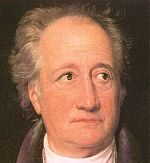 Last Tuesday, August 28, but in 1749, Germany’s greatest poet, Johann Wolfgang von Goethe, was born. He joined the rebels of the Sturm und Drang (or “storm and stress”) period of German literature, which resisted French neo-classicism. Goethe’s poem Prometheus insisted that man must believe not in gods but in himself. The author of The Sorrows of Young Werther, banned by Catholic authorities in Italy, and Faust, on his first visit to Rome not only developed a passion for classical ideals, but confirmed an aggressive stand against the Churches. He wrote Römische Elegien and, with Friedrich von Schiller, Die Xenien, a collection of caustic epigrams, including many against religion. It was Goethe who wrote to theologian Johann Lavater, “You say truly that Man is God and Satan, Heaven and Earth, all in one, for what else are these concepts but conceptions which Man has of his own nature.”
Last Tuesday, August 28, but in 1749, Germany’s greatest poet, Johann Wolfgang von Goethe, was born. He joined the rebels of the Sturm und Drang (or “storm and stress”) period of German literature, which resisted French neo-classicism. Goethe’s poem Prometheus insisted that man must believe not in gods but in himself. The author of The Sorrows of Young Werther, banned by Catholic authorities in Italy, and Faust, on his first visit to Rome not only developed a passion for classical ideals, but confirmed an aggressive stand against the Churches. He wrote Römische Elegien and, with Friedrich von Schiller, Die Xenien, a collection of caustic epigrams, including many against religion. It was Goethe who wrote to theologian Johann Lavater, “You say truly that Man is God and Satan, Heaven and Earth, all in one, for what else are these concepts but conceptions which Man has of his own nature.”
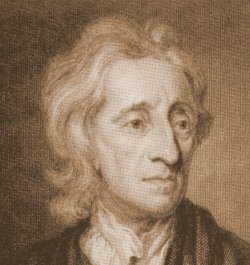 Last Wednesday, August 29, but in 1632, English philosopher John Locke was born. Locke’s life coincided with the English Civil War and its Puritan era. The questions over which the war was fought – religious toleration and the role of Parliament vs. that of the king – were not settled until the Glorious Revolution of 1688. Two years later, Locke published his famous Essay Concerning Humane Understanding. Though a believer himself, Locke wrote, “Nothing that is contrary to, and inconsistent with, the clear and self-evident dictates of reason, has a right to be urged or assented to as a matter of faith.” He maintained that religious opinion could not be legislated or coerced and that sovereign power should derive from the governed and not from the divine right of a king. It was John Locke who wrote, “How any man who should inquire and know for himself can content himself with a faith or belief taken upon trust, is to be astonishing.”
Last Wednesday, August 29, but in 1632, English philosopher John Locke was born. Locke’s life coincided with the English Civil War and its Puritan era. The questions over which the war was fought – religious toleration and the role of Parliament vs. that of the king – were not settled until the Glorious Revolution of 1688. Two years later, Locke published his famous Essay Concerning Humane Understanding. Though a believer himself, Locke wrote, “Nothing that is contrary to, and inconsistent with, the clear and self-evident dictates of reason, has a right to be urged or assented to as a matter of faith.” He maintained that religious opinion could not be legislated or coerced and that sovereign power should derive from the governed and not from the divine right of a king. It was John Locke who wrote, “How any man who should inquire and know for himself can content himself with a faith or belief taken upon trust, is to be astonishing.”
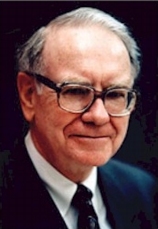 Last Thursday, August 30, but in 1930, the multi-billion-dollar investor Warren Buffet was born. The Chairman of Berkshire Hathaway is also known as the “Oracle of Omaha” for his Nebraska-based wisdom in picking market winners. One thing he did not invest in was religion: as biographer Roger Lowenstein says, Buffet “did not subscribe to his family’s religion. … He adopted his father’s ethical underpinnings, but not his belief in an unseen divinity.” “An agnostic like [philosopher and atheist Bertrand] Russell, and deeply aware of his mortality,” writes Lowenstein, “Buffett thought it was up to society, collectively, to protect the planet from dangers such as nuclear war.” Warren Buffet describes himself as “Agnostic.”
Last Thursday, August 30, but in 1930, the multi-billion-dollar investor Warren Buffet was born. The Chairman of Berkshire Hathaway is also known as the “Oracle of Omaha” for his Nebraska-based wisdom in picking market winners. One thing he did not invest in was religion: as biographer Roger Lowenstein says, Buffet “did not subscribe to his family’s religion. … He adopted his father’s ethical underpinnings, but not his belief in an unseen divinity.” “An agnostic like [philosopher and atheist Bertrand] Russell, and deeply aware of his mortality,” writes Lowenstein, “Buffett thought it was up to society, collectively, to protect the planet from dangers such as nuclear war.” Warren Buffet describes himself as “Agnostic.”
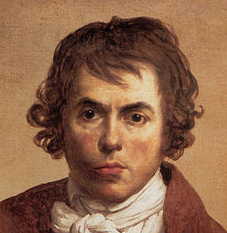 Last Thursday, August 30, also was the birth in 1748 of the most important European painter of the French Revolutionary period, Jacques-Louis David. David took the Prix de Rome at age 26 (1774), transformed from rococo to neoclassical style, then moved on to a realistic style of painting to document the French Revolution, beginning in 1789. He was elected a deputy to the National Convention in 1792 and organized many of its pagan festivals during a time when religion fell into wide disfavor. David was more eloquent as a painter than as a speaker, but agreed philosophically with the atheist Denis Diderot.
Last Thursday, August 30, also was the birth in 1748 of the most important European painter of the French Revolutionary period, Jacques-Louis David. David took the Prix de Rome at age 26 (1774), transformed from rococo to neoclassical style, then moved on to a realistic style of painting to document the French Revolution, beginning in 1789. He was elected a deputy to the National Convention in 1792 and organized many of its pagan festivals during a time when religion fell into wide disfavor. David was more eloquent as a painter than as a speaker, but agreed philosophically with the atheist Denis Diderot.
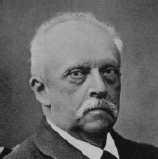 Yesterday, August 31, but in 1821, German physician and physicist Hermann von Helmholtz was born. In an 1847 physics treatise Helmholtz described the law of the conservation of energy. This was in line with his philosophical belief that no deity or “vital principal” was necessary to explain muscle movement. Indeed, as a thorough and outspoken Agnostic, Helmholtz believed medicine would eliminate belief in “mystical disease-entities.” Helmholtz maintained that God was not necessary to the functioning of the universe; that no “act of supernatural intelligence” explains the origin of humanity better than Darwin’s theories.”
Yesterday, August 31, but in 1821, German physician and physicist Hermann von Helmholtz was born. In an 1847 physics treatise Helmholtz described the law of the conservation of energy. This was in line with his philosophical belief that no deity or “vital principal” was necessary to explain muscle movement. Indeed, as a thorough and outspoken Agnostic, Helmholtz believed medicine would eliminate belief in “mystical disease-entities.” Helmholtz maintained that God was not necessary to the functioning of the universe; that no “act of supernatural intelligence” explains the origin of humanity better than Darwin’s theories.”
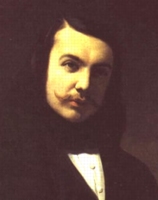 Also yesterday, August 31, but in 1811, French poet and journalist Théophile Gautier was born. Influenced by Victor Hugo and mentored by Honoré de Balzac, Gautier distinguished himself by his standard of perfection in criticism and his pursuit of perfection in his own poetry – a perfectionism was based in his rationalism – believing absolute beauty is God. “He would like to believe in a consolation after death,” writes his biographer (Richardson), “but he cannot; and he will never be able to accept the Catholic belief in the life to come.” It was Théophile Gautier who said, “In art we have no religion but the religion of art itself.”
Also yesterday, August 31, but in 1811, French poet and journalist Théophile Gautier was born. Influenced by Victor Hugo and mentored by Honoré de Balzac, Gautier distinguished himself by his standard of perfection in criticism and his pursuit of perfection in his own poetry – a perfectionism was based in his rationalism – believing absolute beauty is God. “He would like to believe in a consolation after death,” writes his biographer (Richardson), “but he cannot; and he will never be able to accept the Catholic belief in the life to come.” It was Théophile Gautier who said, “In art we have no religion but the religion of art itself.”
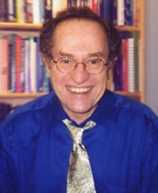 Finally, it was today, September 1, but in 1938, that Harvard law professor and civil liberties lawyer Alan Dershowitz was born. The Clarence Darrow of the late 20th and early 21st centuries, Dershowitz made his reputation defending Claus von Bülow in his 1984 attempted murder case, and as part of the “dream team” of defense lawyers that acquitted O.J. Simpson on murder charges in 1995. A patron of many Jewish causes, Dershowitz says, “God is not central to my particular brand of Jewishness. … Being Jewish, to me, transcends theology or deity.” And, “I consider myself a committed Jew, but I do not believe that being a Jew requires belief in the supernatural. … Indeed, it is while praying that I experience my greatest doubts about God, and it is while looking at the stars that I make the leap of faith. … If there is a governing force, He (or She or It) is certainly not in touch with those who purport to be speaking on His behalf.”
Finally, it was today, September 1, but in 1938, that Harvard law professor and civil liberties lawyer Alan Dershowitz was born. The Clarence Darrow of the late 20th and early 21st centuries, Dershowitz made his reputation defending Claus von Bülow in his 1984 attempted murder case, and as part of the “dream team” of defense lawyers that acquitted O.J. Simpson on murder charges in 1995. A patron of many Jewish causes, Dershowitz says, “God is not central to my particular brand of Jewishness. … Being Jewish, to me, transcends theology or deity.” And, “I consider myself a committed Jew, but I do not believe that being a Jew requires belief in the supernatural. … Indeed, it is while praying that I experience my greatest doubts about God, and it is while looking at the stars that I make the leap of faith. … If there is a governing force, He (or She or It) is certainly not in touch with those who purport to be speaking on His behalf.”
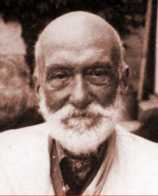 And on September 1, but in 1848, Swiss physiologist Auguste Forel was born. Although fascinated with insects, to the point of publishing his celebrated work, The Mental Capacity of Ants in 1907, which was awarded the Academy Prize, Forel’s work in human psychology and the anatomy of the brain influenced Sigmund Freud. His outspoken socialist views perplexed his associates, but his 1908 publication, Life and Death, describes his rationalist views. Forel describes his Agnosticism in the 1914 symposium What We Owe Ernst Haeckel. It was Auguste Forel who, referring to ants, but extending the materialistic idea to humans, wrote, “Every act of thinking is identical with the molecular activity of the brain-cortex that coincides with it.”
And on September 1, but in 1848, Swiss physiologist Auguste Forel was born. Although fascinated with insects, to the point of publishing his celebrated work, The Mental Capacity of Ants in 1907, which was awarded the Academy Prize, Forel’s work in human psychology and the anatomy of the brain influenced Sigmund Freud. His outspoken socialist views perplexed his associates, but his 1908 publication, Life and Death, describes his rationalist views. Forel describes his Agnosticism in the 1914 symposium What We Owe Ernst Haeckel. It was Auguste Forel who, referring to ants, but extending the materialistic idea to humans, wrote, “Every act of thinking is identical with the molecular activity of the brain-cortex that coincides with it.”
We can look back, but the Golden Age of Freethought is now. You can find full versions of these pages in Freethought history at the links in my blog, FreethoughtAlmanac.com.

